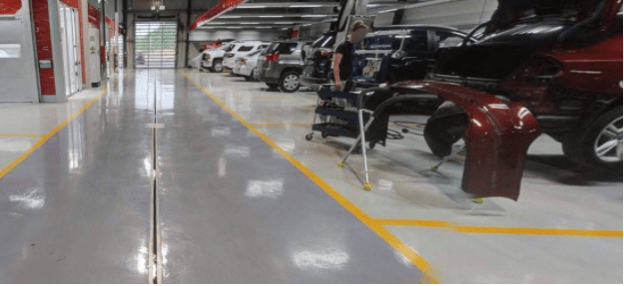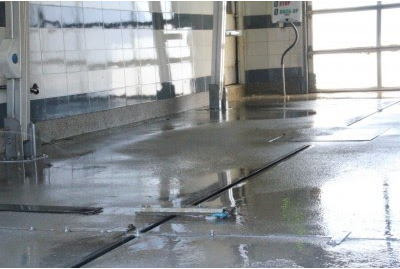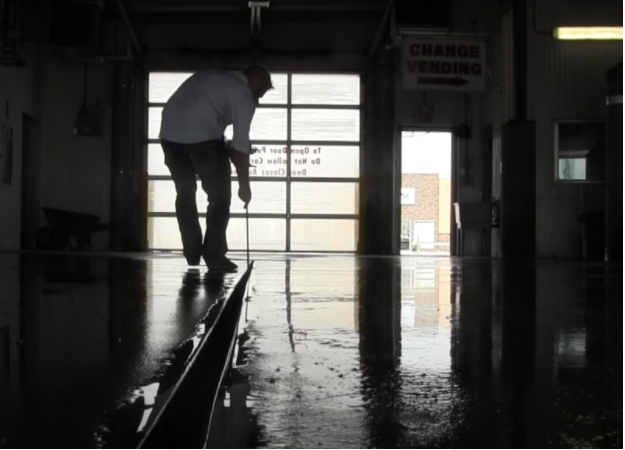One of the concerns in auto shops is the various types of waste they create during their day-to-day operations. The hazardous waste generated is of the most concern, as it can damage the environment, especially if not managed properly. Practising proper disposal and management is critical to not only saving on business costs but ensuring compliance with EPA and local government guidelines. Practising proper hazardous waste management includes having a quality floor drainage system to manage any fluid waste that is created.
The Importance of Effective Auto Shop Drainage
High-quality auto-shop drains play a large part in maintaining a safe and clean auto facility. An auto shop's floor is constantly covered in fluids, from harmless water to vehicle fluids and cleaning chemicals, which creates slippery surfaces. A drainage system will remove these fluids from the surface, and allow the ground to dry and keep corrosive chemicals from damaging the floor and equipment.
Drainage systems also provide a method of managing and disposing of hazardous waste, which cannot go through the regular sewage system.
6 Steps for Managing Pollution Effectively
Auto shops cannot simply rely on auto repair drains for hazardous waste and pollution management, they must incorporate other methods of management to prevent pollution. Possible management methods include:
1. Training Employees
Proper employee training is the key to any successful business. If an employee is trained in the importance of pollution prevention and what is necessary to prevent it, the less likely it is that contaminated wastewater will get into the sewer system. Training in this subject should cover:
- How to handle hazardous waste and contaminated wastewater
- Proper storage and handling of various fluids
- When to plug the drain
- How to deal with leaks
- How to clean up spills
Hazardous material training is vital, and you should ensure that all employees understand everything before allowing them to work since any mistakes can cause issues for you and your business.
2. Seal Floor Drains
The contaminated wastewater from auto shops cannot enter the sewage system directly. This wastewater contains countless hazardous chemicals that can be harmful to the environment, so it is important to prevent it from discharging into the sewers. To do so, workers need to seal the auto shop drains in the service and storage areas. You want to discuss sealing the drains with both your landlord and the local fire and building departments. The collected contaminated water can then be disposed of in an appropriate manner.
3. Post Signs
Pollution prevention isn't just up to the auto shop and its employees–it's also up to the customers. Post signs around the shop premises reminding employees about refraining from pouring automotive fluids down the drains. Informing them of the rules is critical, as is explaining why they exist and are so important.
4. Wash Cars By Hand
If you need to wash any cars, try doing it by hand–the wastewater from hand-washing cars is generally allowed to flow into auto repair drains. However, this allowance does come with some conditions:
- Wastewater cannot contain materials with petroleum distillates and no vehicle transport coating materials.
- Hand car washing is allowed in dedicated vehicle wash areas only. A dedicated vehicle wash area must be physically separate from the service and storage areas, either from a distance or by the presence of a physical barrier. The drain in this area also gets plugged when not in use to ensure no unwanted wastewater gets into the drain system.
5. Perform General Shop Care
The best way to prevent pollution is to keep your shop clean and organized, in order to minimize the risk of accidents and leaks. You also need to maintain all of your equipment, performing any repairs immediately to ensure no equipment is leaking hydraulic fluids, and that everything is working properly. When working with cars or car parts, be careful of leaks; drain fluids when necessary, use a drip pan to catch any fluids. You also want to regularly clean your auto shop drains to ensure that they function properly and do not have any debris or waste residue.
6. Choose A Reliable Auto Repair Drain System
A drainage system is necessary to help manage wastewater in auto shops, but not all drainage systems provide the same efficiency. Slot Drain's 8000 Series drain system comes with a highly durable and sleek design in stainless steel, fiberglass or galvanized steel that is corrosion-resistant. The simple one-piece design features a slot opening that doesn't require a drain cover, allowing it to blend seamlessly with the surrounding surface and making it easier to clean, particularly with the addition of Clean-in-Place and Flush Flo systems for automated cleaning.
Taking Steps to Prevent Pollution
A drainage system alone is not enough to efficiently handle auto shop pollution prevention and management, so you will need to invest in the best system possible. Drainage systems play a vital role in creating a clean and efficient auto shop, and they help collect hazardous wastewater and minimize the risk of pollution.
Slot Drain is a durable and effective method of managing wastewater, ensuring that the shop remains clean, dry, and pollution-free. Contact Slot Drain today to take care of your auto shop drain needs.





